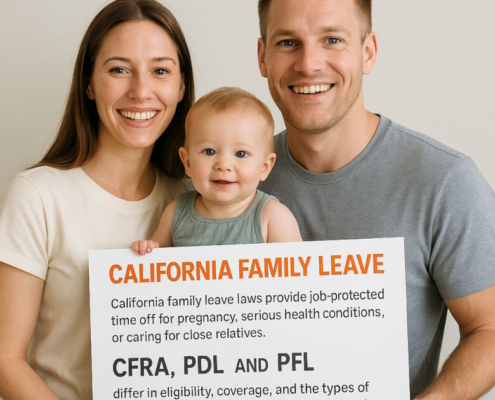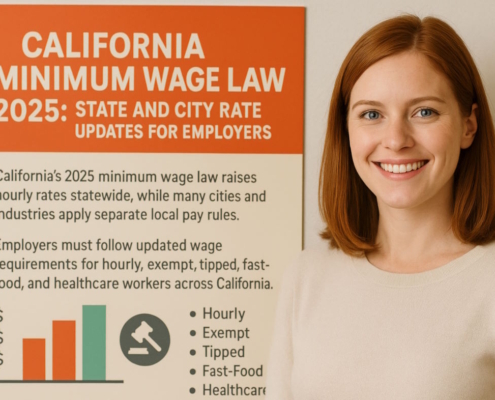Can My Employer Use My PTO Without My Permission?
In California, employers are prohibited from have a use-it-or-lose-it PTO policy.
By Brad Nakase, Attorney
Email | Call (888) 600-8654
Under California law, employers are not required to provide paid vacation or paid time off (PTO). Evidence shows, however, that employees who are allowed paid time off are generally happier and healthier. For the employer, this equals increased productivity and company loyalty. Therefore, many employers have chosen to offer PTO as an employee benefit.
But it’s not that simple. Employers who offer paid vacation time to employees must meet certain requirements. In California, vacation time is considered to be a form of built-in wages. This means that in the eyes of the law the employee has already earned that pay at the time of employment. Therefore, vacation time cannot expire and must be paid out to an employee upon termination of employment. The same rules apply to any other form of paid time off.
Sick leave is a little different. Under California law, employers must provide a certain number of paid sick days per year. This is not optional, unlike providing PTO or vacation time.
In this article, our attorney for workers discuss PTO as follows:
Vacation Time
Normally, an employee’s vacation time adds up over time. For instance, if a workplace grants an employee ten days of vacation every year, after six months that employee will have five days of vacation available to use.
But not so fast! Employers might require a waiting period when an employee is first hired. This means that for a while, a new employee will not build up vacation time. Often, this period lasts 90 days, but it can last as long as a year.
Employers may also make vacation eligible only to certain groups. Of course, they must not discriminate against a particular group based on characteristics such as race or gender. They may, however, give vacation only to full-time employees, as an example.
Vacation Caps
Some states have a “use-it-or-lose-it” vacation policy. Under such a policy, built-up vacation must be used by a certain date, or else it must be given up. Usually, the date is the end of a calendar year. “Use-it-or-lose-it” policies are often viewed as illegal, because vacation time is considered earned wages. These policies are thereby withholding owed wages.
It is possible, and permissible, for employers to put a cap on vacation time. This means that once an employee reaches a certain number of days, vacation will stop building up until some of the time is used. Employers may thereby prevent employees from building up unreasonable amounts of PTO.
Example:
Joan is thrilled to learn that her company has a vacation policy of ten days a year. She would like to take a month-long tour of Europe, and she decides to not use her vacation days for three years in order to build up 30 days of PTO. Her boss tells her this is not possible. Why?
The California Department of Labor Standards Enforcement (DLSE), which enforces wage and hour laws in California, provides guidelines for employers and for the benefit of employees. According to the agency, a vacation cap should be no less than 1.75 times the yearly accrual rate, or must otherwise be within reason.
To return to our example, Joan’s company has a vacation cap of 1.75 times the yearly accrual rate. This means that Joan can rack up 17.5 days of vacation as a maximum. Once she reaches that number, she must use some time in order to earn more days. Sadly, she cannot take her planned month-long trip to Europe using solely PTO.
Scheduling Vacation
When it comes to scheduling, employers have a lot more leeway to design their vacation policies. Generally speaking, employers can determine how and when their employees can take PTO. For instance, an employer can require his or her employees to submit vacation requests in advance. Employers can also implement “blackout” dates, which are period during which employees cannot take time off. Holidays and tax season are often blackout dates in certain industries. Similarly, employers can control how many employees are on vacation at any one time. This way, the workplace does not become understaffed.
The employer has the freedom to regulate when vacation is scheduled as long as his or her decisions are not discriminatory (based on age, sex, religion, race, etc.)
Vacation Payout
When an employment contract is terminated, all built-up and unused vacation time must be paid back to the employee. Because vacation time is considered earned wages, it must be paid back to the employee along with the final paycheck.
Regarding an employee’s final paycheck, the following applies:
- If an employee is fired, the final paycheck is due immediately upon firing
- If an employee quits, giving 72 hours’ notice, the final paycheck is due at the time of quitting
- If an employee quits, giving less than 72 hours’ notice, the final paycheck is due within 72 hours of quitting
Paid sick leave is not affected by the same laws, and they do not have to be paid out to an employee. However, if sick days are part of a company’s PTO policy, they are treated the same as vacation days and must be paid out upon an employee’s separation from the company.
Personal Days
Some employers offer a define number of “personal days,” also known as “floating holidays” each year. Holidays that are related to a particular event typically don’t require to be paid out upon termination of employment. So, if an employer wishes to give an employee PTO over Christmas, the employee’s birthday, or wedding anniversary, the employer does not have to pay out these days. However, if the personal days may be taken at any time of the year for no specific occasion, then they are treated as vacation and must be paid out.
Advances on Vacation
Employers are allowed to give vacation to employees in advance. However, they are not allowed to deduct that advanced vacation from an employee’s paycheck if the employee quits.
Here’s an example to illustrate the point:
Gloria has only accrued one week of vacation. She asks her boss if she could take a two-week vacation to Morocco. Her boss agrees to advance her a second week of vacation time. After her vacation, Gloria quits her job to work at a hookah lounge. By law, her boss cannot subtract the second week of vacation’s monetary value from her final paycheck.
Waiting Time Penalties
Vacation time is considered earned wages, so an employer who does not pay out vacation with the final paycheck could face “waiting time penalties.” A waiting time penalty is the employee’s daily wage for as many as 30 days. Employees whose vacation is not paid out may file a claim with the DLSE or otherwise sue their employer in court.
Have a quick question? We answered nearly 2000 FAQs.
See all blogs: Business | Corporate | Employment Law
Most recent blogs:
Contact our attorney.
































